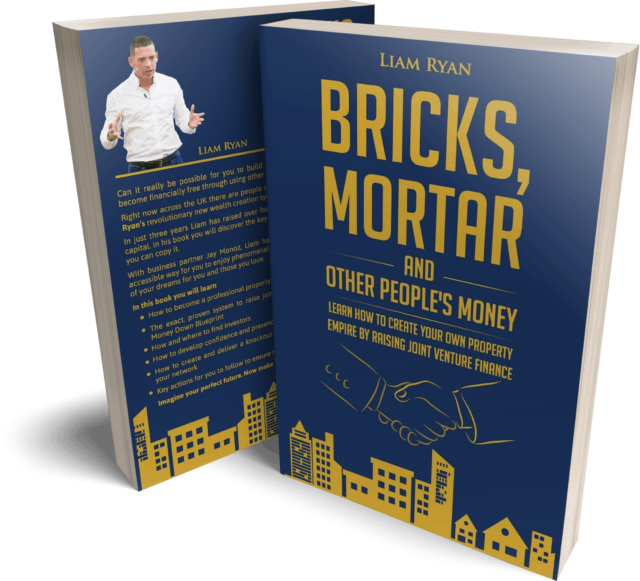Modular Homes vs. Traditional Homes as Property Investments in the UK

Rising costs, supply chain issues within construction, labour shortages and a lack of housing in the UK mean that many people are looking to modular housing to solve these problems. Modular housing, also known as prefabricated housing, could be the answer. But is it worth investing in? In this blog, I will look at the benefits and drawbacks of modular homes compared to traditional homes from a property investment perspective.
Table of Contents
ToggleWhat Are Modular Homes?
Modular homes, also known as prefabs or pre-manufactured modular buildings, are a type of house that is constructed offsite in a factory in modules, and then transported to their final location by road and assembled to create a house. Modular homes are built using a construction method known as MMC, or modern method of construction. They use some traditional materials like wood and concrete and commonly include a steel frame. They can be built much faster than traditionally constructed houses and are often much cheaper.
Modular construction is also used to create hospitals, schools, offices or other commercial buildings. Modular housing is also popular in other countries such as Japan and Sweden which build large amounts of modular homes. Currently, about 15,000 modular homes are built per year in the UK. Modular homes could address social issues like homelessness, help with the government’s target of delivering 300,000 new homes every year, and offer a more eco-friendly solution to traditional builds.
What Are Traditional Homes?
Traditional homes are the norm for most houses and other buildings. They are built using traditional construction methods, e.g. building on-site, laying a foundation, and using common building materials like bricks and mortar. Several skilled trades must come together to work on different parts of the house, i.e. plumbing, joinery, tiling, plastering and more to complete the build. Traditional homes take a long time to complete and cost more than modular homes but are usually larger and will remain structurally sound for a much longer time.
Should You Invest In Modular Homes?
Investing in modular homes could be a wise decision. A report by Savills suggests that the UK will emerge as the leading growth market in Europe for modular homes. They would tackle a lot of issues mentioned above such as the need for affordable and environmentally friendly housing and could provide quick, cheap housing for homeless people. The UK has used modular housing previously – after WWII, more than 150,000 prefabricated houses were built following a severe housing shortage in the 1950s and 60s. Many of these houses are still standing and lived in today, showing that they are long-lasting and solidly built.
How much does it cost to build a modular home?
It costs anywhere between £300 – £1,500 per square metre to build a modular home. This varies depending on the type of building materials used, the size of the home being built, the design layout and any required site preparation. This is a lot cheaper than traditional homes which can cost between £1,500 – £3,000 per square metre to build. From an investment point of view, this is advantageous, as you can purchase a modular home with a lot less investment than is required for a traditional home.
How long does it take to build a modular home?
The time it takes to build a modular home does vary depending on the size, design and other factors, but they are usually much quicker to build than a traditional home of the same size. The fabrication stage of a modular building takes just a few weeks. From the initial design stage to the actual construction of a modular home on-site, you are looking at maybe 3-4 months, providing that all building permits and other permissions are granted in advance. This is very fast compared to a traditional home which can take at least 9-10 months for construction. The construction speed of modular homes means that you can sell them or rent them out much faster, so you will see a quicker return on your investment.
8 Pros And Cons of Modular Homes as Investment:
Here are 8 benefits and drawbacks of modular homes that you should be aware of before you consider investing in them:
- Pro: Modular homes are very cost-effective compared to traditional builds, meaning they can be acquired more cheaply.
- Con: Modular homes offer some customisation options, but not as much as traditional homes as you are restricted by factory production processes and design limitations.
- Pro: Modular homes are constructed much faster than traditional homes, meaning that you can sell or move tenants in much faster, enabling a quicker return on your investment.
- Con: Some areas may have restrictions or zoning regulations that affect the placement of modular homes. Check with local authorities and make sure you obtain the required permits before investing.
- Pro: Factory construction allows for better quality control as the process of building modular homes is highly standardised, resulting in fewer construction defects.
- Con: Some buyers perceive modular homes as inferior in terms of quality and durability, despite advancements in modular construction techniques.
- Pro: Many modular homes are designed with energy efficiency in mind with sustainable building materials, high-quality insulation and efficient heating systems.
- Con: It may be difficult to obtain a mortgage for a modular home. Some lenders will want a guarantee that the property will last for at least 60 years. Some lenders, however, do specialise in mortgages for modular homes.
Are Modular Homes Worth Investing In?
As with all investments, there is an element of risk involved, but as long as you bear in mind the points above, conduct thorough due diligence, and mitigate potential risks, investing in modular homes could be very profitable. The UK is likely to rely more on modular homes to deliver housing quickly and cheaply, so it’s likely we will see a lot more modular homes popping up in the near future.
Should You Invest In Traditional Homes?
Traditional homes have always been a solid investment for property investors, as they are always in demand. However, the continuously increasing costs and delays in construction make for a frustrating experience for those waiting for the completion of a property. According to a study by Birmingham City University, an ageing workforce, failure to replace retiring workers, and a reduction in skill levels have reduced the UK’s output of traditional homes. This could mean that traditional housing becomes more expensive to build and could take even more time to complete.
How much does it cost to build a traditional home?
The costs of building a traditional home can vary greatly depending on the size, style and location of the property, from a couple of hundred thousand to millions of pounds. Other costs like stamp duty, legal fees and the cost of purchasing the land will need to be factored in. A rough ballpark figure is anywhere between £1,500 – £3,000 per square metre to build a traditional home. Many skilled trades will need to be involved so it is wise to engage with a construction company that can manage the project for you and recruit the tradespeople as required.
How long does it take to build a traditional home?
The construction time for a traditional home can vary greatly depending on the size, the location, the building materials chosen, plus lots of other variables that can come into play. Time estimates range from the very optimistic 6 months to the much protracted 2 years. During the construction process, there may be delays due to the amount of tradespeople, materials and coordination required. There may be delays in obtaining planning permission and permits, site preparation, the availability of labour and skills, supply chain disruptions for building materials, adverse weather conditions, and other factors. You can address these issues by being proactive and implementing effective project management.
Pros And Cons of Traditional Homes as Investment:
Here are 6 main pros and cons of investing in traditional homes that you should consider before investing:
- Pro: Traditional homes have a reputation and track record of being sturdy and long-lasting, making them more resilient to market fluctuations compared to alternative property types.
- Con: Traditional homes can require a lot of maintenance and repairs, adding to the cost of ownership and cutting into your profits.
- Pro: Many renters and buyers want the comfort and familiarity of traditional homes, making them easier to sell or rent out.
- Con: Traditional homes are less energy efficient than modular homes, leading to higher utility bills and more impact on the environment. Retrofitting more energy-efficient appliances and heating systems can be costly and potentially disruptive if you have tenants in situation.
- Pro: There are more opportunities for renovations and extensions on traditional homes, allowing you to increase the value of the property and attract higher rental value and sale prices.
- Con: Traditional homes take a long time to build and it’s very possible they will go over budget if there are complications during the construction process. This can cut into your return on investment and you might be waiting months or even years until you can sell or rent out the property.
Are Traditional Homes Worth Investing In?
Despite the upcoming prevalence of modular homes, there will always be a demand for classic, traditionally built homes. Whether you invest in traditional or modular properties, it is important to weigh up the risks and benefits of each, do plenty of research, and choose your building location carefully to avoid any unpleasant surprises down the road.
Interested in investing in property? Why not find out more at one of our FREE property investment events where you can meet property experts like me, Liam J Ryan, and other top investors who are ready to share their valuable tips and advice with you – sign up here
You May Also Be Interested In...

A Guide to Selling Your Buy-To-Let Property
Thinking of selling your buy-to-let? Learn how to time the market, manage tax and maximise

Planning Permission Loopholes You Should Know About
Discover UK planning permission loopholes, permitted development rights and when you can extend, convert or
Featured Property Investment Events & Courses
The Property Deal Packaging Summit
The Property Millionaire Bootcamp
The Serviced Accommodation Bootcamp






